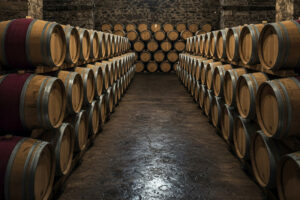The predominant traits of a professional wine taster are experience and perceptions from the brain. A scientific case study on brain responses of professional wine tasters and wine aficionados, especially in the United States, through MRIs on both subjects, shows that there are specific brain activities that govern the definition of the relationship between feelings (olfactory, visual and taste) and a way to interact with the results of these perceptions. This subject was discussed during the workshop "The characteristics of a good taster: how to evaluate the experts at "Wine2Wine", the Vinitaly-VeronaFiere forum organized in collaboration with Federvini and Italian Wine Union in Verona.
“There is no doubt that a professional taster,” explained Ian D'Agata, the scientific director of Vinitaly Academy, “has some "talent" that is more or less naturally developed in terms of taste buds and nerve endings. These features are common to all; what makes the difference is experience and tasting references. “So, we all have the same discriminative and cognitive abilities in tasting, which are tied to specific physical and biological mechanisms. The quality of taste perception is influenced by factors such as "gender, age, moisture (external and internal) and hormones,” continues D'Agata, “that must be taken into account”.
Experience is the decisive element of the tasting "experts", that often determine the success or failure of companies they examine and whose judgments are in wine guides and magazines. “Tasting a lot and regularly,” explained the psychiatrist Mark Palermo, “causes a kind of brain "mutation" that develops gray matter areas previously dormant, therefore "training" the brain, so to speak, in this experience, which then improves”.
So, the professional taster is in a position to practice a kind of "art of persuasion" on fans and consumers and, in this sense, Palermo concluded, "the taster should have at least physically produced a wine to fully understand its nature”.
An obvious and not secondary quality of the professional taster “is,” explained Bernard Burtschy, wine critic of "Le Figaro", “attention, which is an antidote to external conditions and too much confidence that often comes from experience”.
Copyright © 2000/2026
Contatti: info@winenews.it
Seguici anche su Twitter: @WineNewsIt
Seguici anche su Facebook: @winenewsit
Questo articolo è tratto dall'archivio di WineNews - Tutti i diritti riservati - Copyright © 2000/2026






































































































































































































